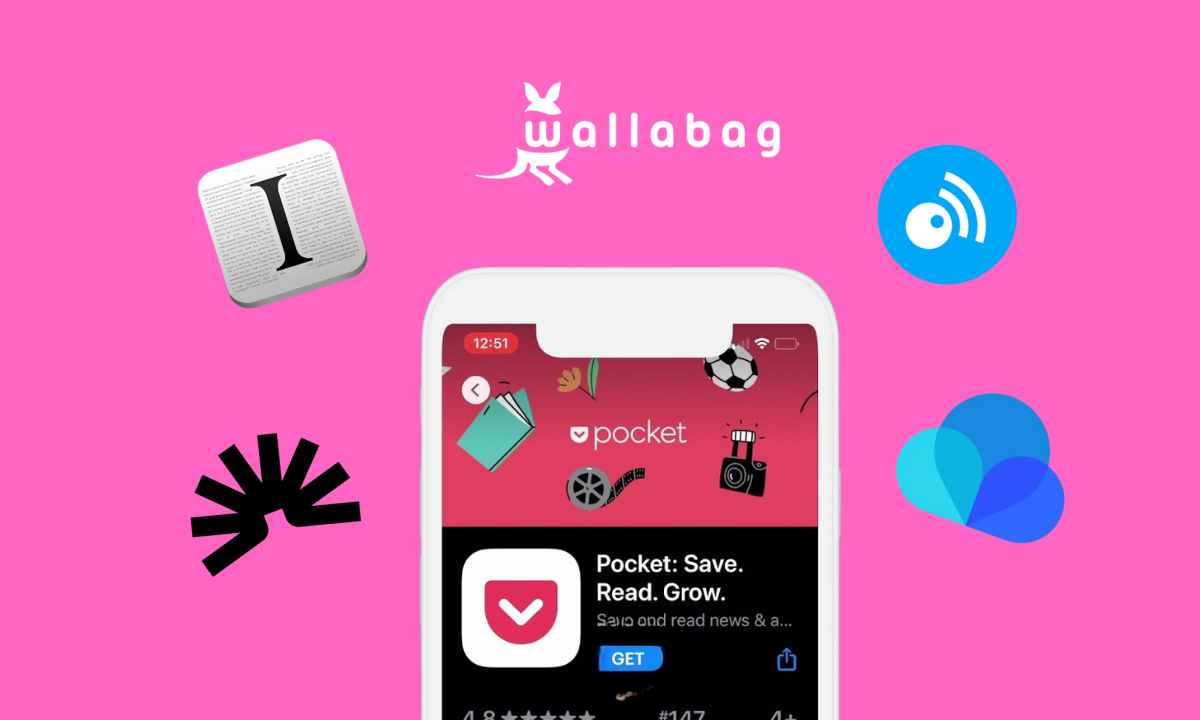Your digital reading routine is about to be disrupted. If you’re among the millions who rely on Pocket to save articles for later reading, you have until July 8, 2025, to find a new solution before Mozilla pulls the plug permanently. Users have until October 8, 2025, to export their saved content before it’s deleted forever.
But here’s what most coverage misses: today’s alternatives offer capabilities that expose how far behind Pocket had fallen. The forced migration isn’t just about survival—it’s an opportunity to upgrade to tools that actually enhance your reading experience in ways you never knew were possible.
Key Takeaways
- Pocket permanently shuts down on July 8, 2025; Mozilla will delete all user data after October 8, 2025.
- Start exporting your saved articles and testing alternatives now to ensure a seamless transition.
- Modern alternatives offer AI analysis, better organization, and superior audio features.
- Self-hosted options like Wallabag provide protection against future service shutdowns and better privacy control.
Why Pocket Failed Modern Users
When Pocket launched as “Read It Later” in 2007, it revolutionized web content consumption. Mozilla’s 2017 acquisition seemed to secure its future. However, despite ongoing updates, Pocket struggled to keep pace with rapidly evolving user expectations for modern productivity tools.
Mozilla stated that “the way people save and consume content on the web has evolved,” essentially admitting Pocket had become obsolete. Modern knowledge workers demand AI-powered content analysis, collaborative features, and advanced organization systems—capabilities Pocket never developed.
5 Superior Free Alternatives
1. Raindrop.io: Advanced Bookmark Management
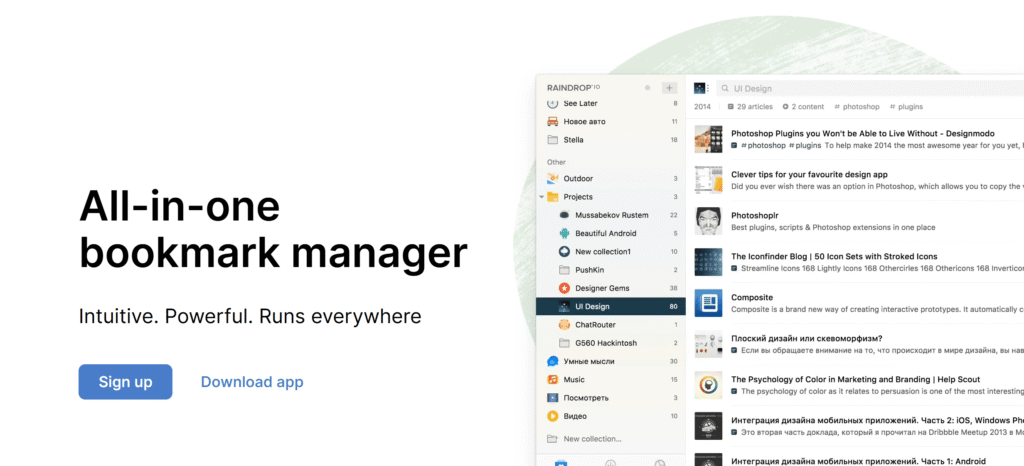
Platform Support: Chrome, Firefox, Safari, Edge extensions plus native apps for Windows, Mac, Linux, iPad, iPhone, and Android.
Pricing: Free plan with unlimited bookmarks, collections, and devices. Pro plan at $3 monthly or $28 yearly.
Raindrop.io transforms basic bookmark management into sophisticated digital content curation. Where Pocket relied primarily on tag-based organization, Raindrop.io provides sophisticated visual organization systems with grid views, thumbnails, and hierarchical collections.
2. Wallabag: Privacy-First Knowledge Management
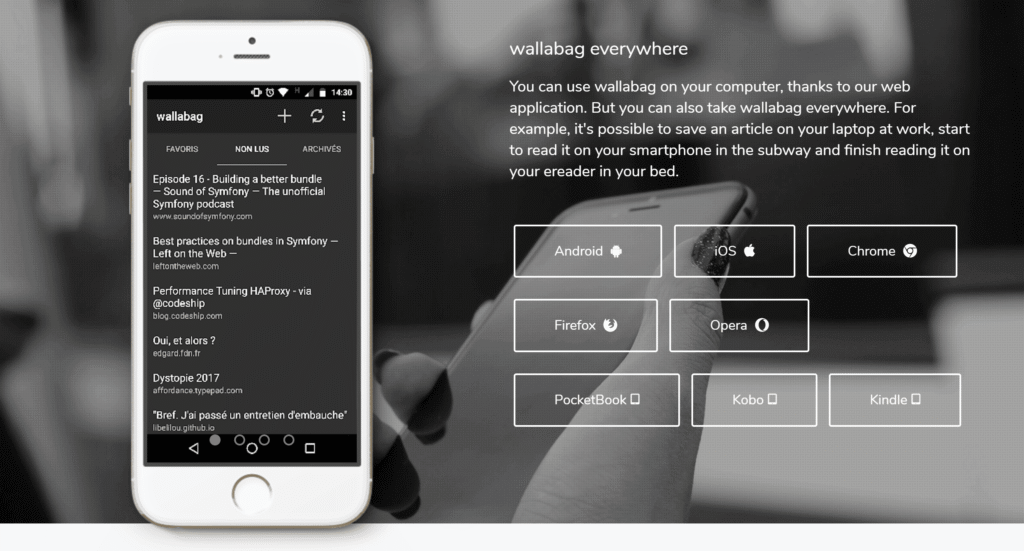
Platform Support: Android, iOS, plus browser extensions.
Pricing: Free (self-hosted) open source or Wallabag’s managed hosting (wallabag.it) costs €11 per year (approximately $12 USD).
For users concerned about corporate shutdowns, Wallabag offers complete data ownership through open-source architecture. This privacy-focused approach delivers superior information retention capabilities.
3. Instapaper: The Original Read-Later Pioneer
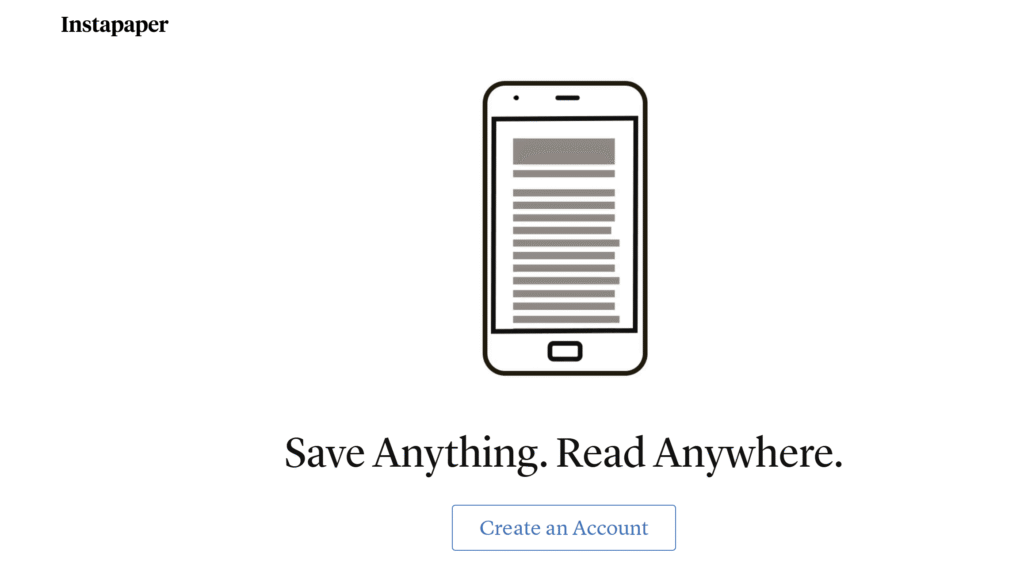
Platform Support: iOS app, Android app, and web service with unlimited synchronization.
Pricing: Free plan with unlimited saves. Premium at $5.99/month or $59.99/year for full-text search and advanced features.
Launched in 2008 by Marco Arment, Instapaper quickly became one of the most influential read-it-later services, helping to popularize features like clean text views and offline reading. While Pocket (originally called Read It Later) was introduced a few months earlier in 2007, Instapaper played a major role in shaping the category and setting standards that many later services adopted. As one of the original bookmarking tools, Instapaper has maintained its core functionality for over 15 years, proving that sometimes consistency trumps constant change.
4. Inoreader: Content Discovery Engine
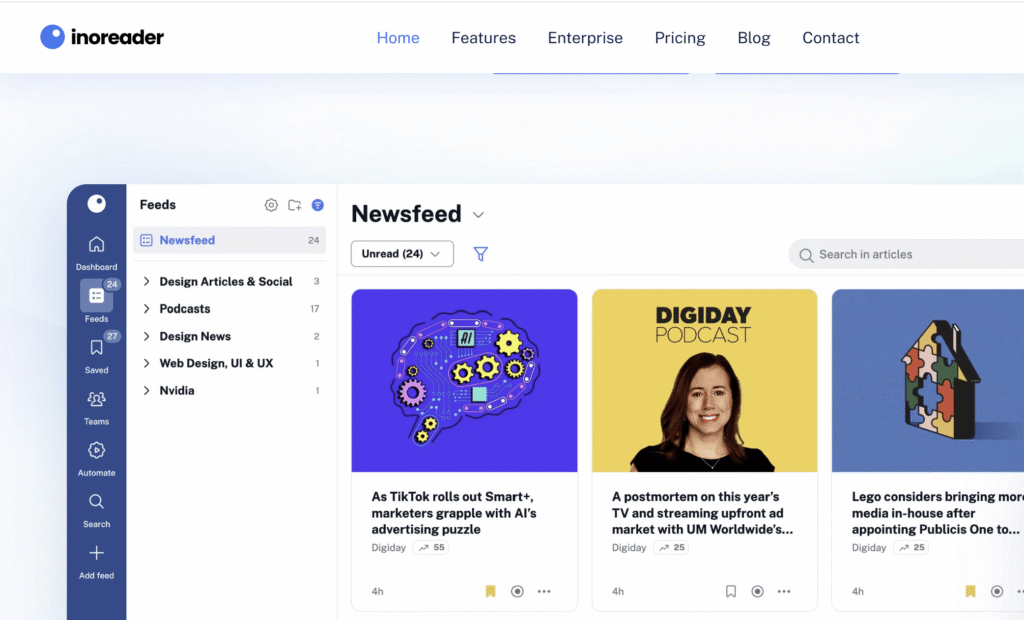
Platform Support: Web application plus native iOS and Android apps.
Pricing: Free plan with unlimited saved web pages for read-it-later. Pro plan at approximately $90/year for unlimited feeds and advanced automation.
Wired magazine ranked Inoreader “Best Overall RSS Feed Reader” in comprehensive testing. Beyond RSS, the platform offers article-saving functionality that rivals dedicated read-it-later services while adding content discovery features.
5. ElevenReader: The Hidden Audio Gem
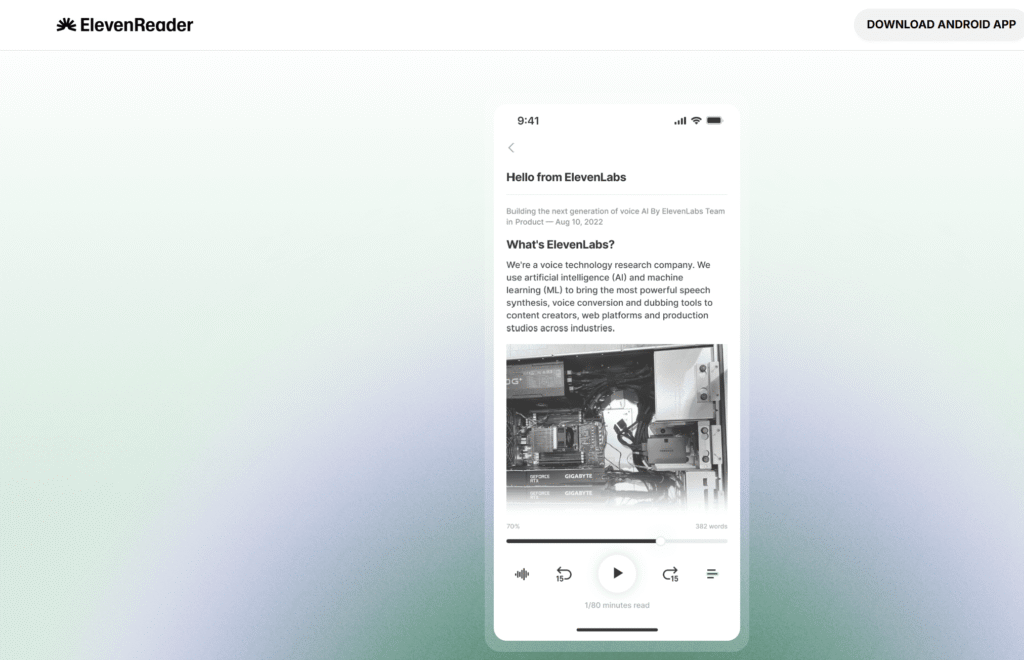
Platform Support: iOS and Android applications.
Pricing: ElevenReader now operates on a freemium model, offering 2 hours per week of free audio generation, with paid plans available through monthly or yearly subscriptions—a change from its previous unlimited free usage. The service supports over 32 languages and maintains high-quality audio streaming for all users.
ElevenReader is a revolutionary text-to-speech solution, not just a bookmarking app, that transforms any saved article into premium audio content. While many bookmark managers offer basic text-to-speech as an afterthought, ElevenReader stands out as a compelling alternative crafted specifically for superior audio article consumption.
Launched globally in August 2024 by ElevenLabs, this platform delivers professional-quality narration that makes the robotic voices in traditional read-it-later services sound primitive by comparison. Users can paste article URLs, upload PDFs, or import text content to experience human-like voice narration that rivals professional audiobook production.
Migration Strategy
Pocket users have until October 8, 2025, to export data before permanent deletion. Verified migration pathways include:
- Raindrop.io: Supports direct import of Pocket data via HTML export, enabling most data to transfer smoothly.
- Wallabag: Multi-format import wizard supporting various read-it-later services.
- Instapaper: Dedicated migration tools with customer support.
- Inoreader: Manual content addition with RSS integration for ongoing updates.
- ElevenReader: Individual article processing with superior audio conversion.
Additional Alternatives Worth Exploring
- Feedly – A versatile RSS feed reader with powerful content discovery features.
- Linkwarden – Self-hosted collaborative bookmark manager with archiving capabilities.
- Readwise Reader – Feature-rich read-it-later app with advanced highlighting.
The Upgrade Opportunity
Mozilla’s Pocket shutdown reveals how user needs have evolved beyond basic read-it-later functionality. These five alternatives demonstrate different approaches to digital reading—from cutting-edge AI technology to refined simplicity, privacy-focused solutions to comprehensive content discovery.
While platforms like ElevenReader offer revolutionary text-to-speech technology and Raindrop.io provides sophisticated organization systems, Instapaper proves that sometimes perfecting the fundamentals—clean text formatting and distraction-free reading—remains valuable.
Each Pocket alternative addresses different user priorities, whether that’s advanced automation, complete privacy control, or simply reliable article saving. The forced migration offers opportunity disguised as disruption—access to reading app alternatives that match your specific needs rather than accepting a one-size-fits-all solution that Pocket had become.
References
- Investing in what moves the internet forward – The Mozilla Blog (2025)
- Mozilla is shutting down read-it-later app Pocket – TechCrunch (2025)
- Pocket is saying goodbye – What you need to know – Mozilla Support (2025)

